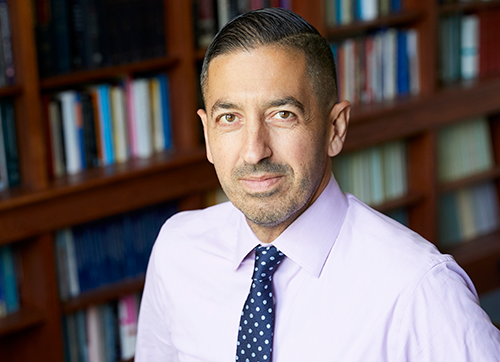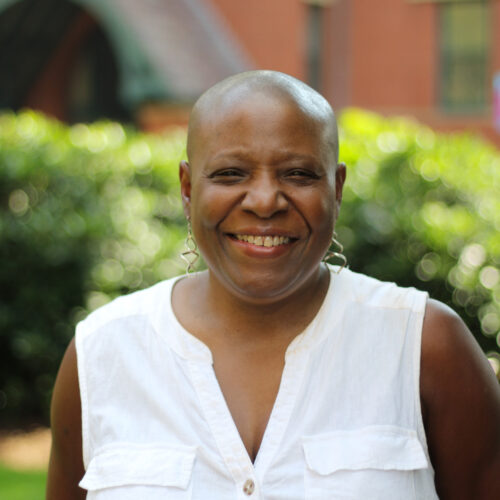Reaffirming Diversity, Equity, and Inclusion as Values in Public Health.

Reaffirming Diversity, Equity, and Inclusion as Values in Public Health
On the foundations of our pursuit of inclusive excellence.
One of the core values of public health is our commitment to the creation of a more equitable, inclusive world. This commitment is at the heart of our mission. A healthier world is a world where no one is excluded; likewise, a healthy academic community is one that is committed to a vision of inclusion, one that welcomes a diverse range of identities and perspectives, towards the goal of a more equitable future.
Hearteningly, over the last ten years or so, many schools and universities have embraced a commitment to the values of diversity, equity, and inclusion. Yet these efforts have also faced skepticism and pushback. In the past few weeks efforts towards creating more diverse, equitable, and inclusive academic spaces have come under increasing scrutiny in the media and been the subject of public conversation. This conversation has implications for our pursuit of equity and inclusion not just in academic communities but in the wider world of public health, where this pursuit has long been core to what we do, who we are.
It seems worth it, then, to revisit the values that underlie our commitment to diverse, equitable, and inclusive communities. Because this is, fundamentally, a matter of values. It is about who we are as a community and as a field. We do not embrace diversity, equity, and inclusion as an exercise in image burnishing or simply because it sounds good. We embrace these values because they align with the goals of public health, with the vision of the world we wish to see. Our capacity to create such a world is determined by our values, the principles that guide our efforts. The values of equity and inclusion point to a world where health is accessible to all, with no one left out. It is important to be clear about these values, to define them for ourselves and for those who may be new to what we are trying to do in the diversity, equity, and inclusion space.
What, then, should we mean in public health when we talk about diversity, equity, and inclusion?
Diversity has long meant diversity of identities, which indeed does matter to give us representation of all who we serve among our ranks. But it also means diversity of perspectives, of backgrounds, of life paths, of political views. It is on us in public health to live by this value—to “walk the talk”—by investing in ensuring that our staff, faculty, and students reflect the populations we serve, but also that we create space for a diversity of perspectives, and that we see identity much more broadly than through a single racial/ethnic or gender lens.
We should mean, by equity, that it truly is equity—not simply equality—that we aspire to. We mean equity of opportunity, allowing for the reality that equity may require us to lend a hand to some more than to others, to ensure that everyone can—through hard work and commitment—thrive and succeed. We mean equity while recognizing that the path to equity is not always so clear and sometimes requires judicious implementation, and always requires humility to make sure we get it right. Even as we recognize that sometimes we do not get it right, we always strive to improve, to be better.
We should mean, by inclusive, a community that prizes inclusive excellence. Such a community aspires to be a place where everyone who wishes to join is welcome and can access the conditions necessary to thrive and succeed. We should not in public health see equity and inclusion as being at odds with excellence. Rather we should see them as enabling such excellence. Little is served by us being starry-eyed-dreamers. Excellence should mean hard work, commitment, perseverance, and that not everyone wants to be part of a community that aims to be excellent at all times. Inclusive excellence means making space for everyone who wants to be part of such a community and is willing to share in the work of making it ever better.
A thriving academic community is one which welcomes people of diverse backgrounds and perspectives and ensures that they truly have a seat at the table. Such a community is a microcosm of the world we wish to see, one where differences are celebrated and supported as the basis for a better future.
Getting to this future is a path all of us in public health should be on. There is no magic solution in academia or in public health more broadly that will get us to a perfectly equitable and inclusive world. No one hire will immediately make us fully equitable. No one training program will make us as inclusive as we hope to be. That is why, at the Boston University School of Public Health, we articulated in 2015 an 11-point plan towards our efforts to support diversity, equity, inclusion, and justice which has evolved over time into our 10-point plan. And that is why we have said, time and again, that shaping a more equitable, inclusive community is a journey, not a destination, that we will never have “arrived,” just as one never “gets to” being excellent. Achieving excellence in pursuit of these goals is a process, ongoing, one that involves all of us.
The public health community has been on this journey now for quite some time, and the field has come far, perhaps also nudging the world forward. And the further along public health moves on this path, the clearer it becomes how much there is to be done.
There are some who have challenged the embrace of efforts to promote diversity, equity, and inclusion at the institutional level, arguing that they are not compatible with a vision that prioritizes excellence. We disagree. We believe these efforts are, in fact, complementary with the pursuit of excellence, that they elevate approaches that help us be and do our very best. As we pursue equity and inclusion in public health, now is the time to double down on the excellence these efforts help sustain. It is time to reaffirm the essence of what makes the work of public health essential part of our national life: our commitment to maintaining a plurality of ideas and perspectives, towards the reason-informed pursuit of truth. This means being willing to interrogate our biases, to find areas of compromise with those we disagree with, to generate ideas that help create a healthier world, one supported by excellence in ideas and in practice
Our goal in public health should be to continue doing this work. Not from a place of rancor, of railing against a world that does not understand, but rather from a place informed by clarity of vision, a willingness to act in alignment with this vision, and a belief that, eventually, the arc of the moral universe will indeed bend towards a better world, for all. This is a moment for recommitting to doing the best we can to promote the work of public health, work that is rooted in our values and open to the world in all its difference.
Warm regards,
Sandro Galea, MD, DrPH
Dean and Robert A. Knox Professor
Boston University School of Public Health
Yvette Cozier, DSc
Associate Dean for Diversity, Equity, Inclusion & Justice
Boston University School of Public Health
Previous Dean’s Notes are archived at: http://www.bu.edu/sph/tag/deans-note/

